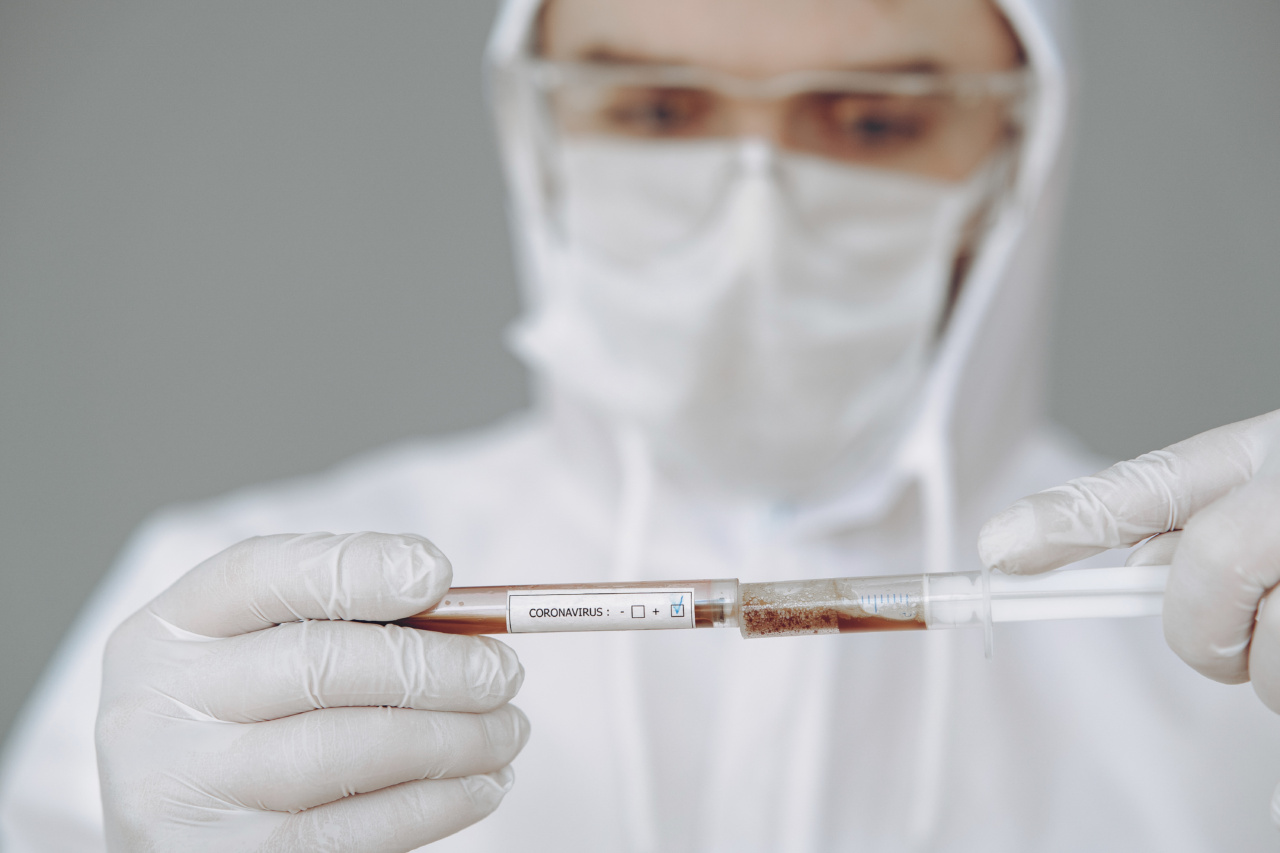Irritable bowel syndrome (IBS) is a common gastrointestinal disorder that affects millions of people worldwide. It is a chronic condition characterized by abdominal pain, bloating, and changes in bowel habits.
Diagnosing IBS can be challenging as its symptoms often overlap with other digestive disorders. Traditionally, physicians have relied on clinical assessment and exclusion of other conditions to make a diagnosis.
However, in recent years, there have been significant advancements in diagnostic techniques for IBS. One such innovation is the development of blood tests specifically designed to identify markers associated with IBS.
These tests provide a non-invasive and reliable way to diagnose IBS, allowing for more accurate and timely treatment.
How do these blood tests work?
The innovative blood tests for IBS target specific biomarkers in the blood that are known to be associated with the condition. These biomarkers may involve various components, such as antibodies, inflammatory factors, or genetic indicators.
By measuring the levels of these biomarkers, healthcare professionals can determine the presence and severity of IBS.
These blood tests have been designed to detect specific IBS-related biomarkers, which are often elevated in individuals with the condition.
By comparing the levels of these biomarkers with established reference ranges, healthcare professionals can make an accurate diagnosis.
The Benefits of Blood Tests for IBS
1. Non-invasive: Unlike invasive diagnostic procedures such as colonoscopy, blood tests offer a non-invasive method for diagnosing IBS. Patients can undergo the test without discomfort or potential complications associated with invasive procedures.
2. Prompt diagnosis: Blood tests provide rapid results, allowing for a quicker and more timely diagnosis. This enables healthcare professionals to initiate appropriate treatment strategies sooner, improving patient outcomes.
3. Objective assessment: Blood tests provide objective measurements of specific biomarkers associated with IBS. This eliminates subjective interpretation and reduces the likelihood of misdiagnosis.
4. Accuracy and reliability: The use of blood tests significantly improves the accuracy and reliability of IBS diagnoses.
By targeting specific biomarkers, these tests can differentiate IBS from other similar conditions, leading to more precise and personalized treatment plans.
5. Monitoring effectiveness of treatment: Blood tests can also be used to monitor the effectiveness of treatment interventions.
By regularly assessing the levels of IBS-related biomarkers, healthcare professionals can gauge treatment response and adjust therapies accordingly.
Limitations and Challenges
While innovative blood tests for IBS offer several benefits, there are some limitations and challenges associated with their use:.
1. Limited biomarker profiles: Currently, blood tests for IBS focus on a limited number of biomarkers associated with the condition.
As our understanding of IBS continues to evolve, the identification of additional biomarkers may enhance diagnostic accuracy.
2. Cost considerations: The development and implementation of blood tests for IBS may involve significant costs. These costs can vary depending on the complexity of the tests, the specific biomarkers targeted, and the testing facilities available.
3. False positives and false negatives: Although blood tests improve diagnostic accuracy, they are not infallible.
False positives and false negatives can still occur, requiring healthcare professionals to interpret results in the context of clinical presentation and other diagnostic findings.
4. Standardization: Standardizing blood tests for IBS across different laboratories and healthcare facilities is essential to ensure consistency and reliable results.
Efforts are underway to establish standardized protocols and reference ranges for interpreting biomarker levels.
The Future of Blood Tests for IBS
The development of blood tests for IBS represents an exciting advancement in the field of gastroenterology.
As research progresses, it is likely that new biomarkers, with greater diagnostic discrimination, will be identified and incorporated into diagnostic tests. This will further improve the accuracy and reliability of diagnosing IBS.
In addition, advancements in technology may lead to the development of point-of-care blood tests for IBS. These tests would allow for rapid on-site diagnosis, minimizing delays and expediting treatment initiation.
Conclusion
The introduction of innovative blood tests for identifying irritable bowel syndrome has revolutionized the diagnosis and management of this common gastrointestinal disorder.
These tests offer a non-invasive, accurate, and reliable method for diagnosing IBS, allowing for timely treatment initiation and tailored therapeutic approaches. While challenges remain, ongoing research and collaboration are likely to lead to further advancements in blood testing, improving the lives of individuals affected by IBS.






























